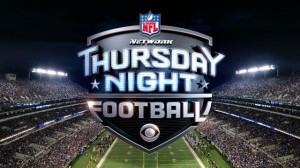 The NFL gobbles another night of prime time this fall, when “Thursday Night Football” debuts on CBS, where it will likely obliterate competition and top the ratings of all competitors combined. No wonder more and more fans are placing their bets on sites like Ladbrokes Near Me.
The NFL gobbles another night of prime time this fall, when “Thursday Night Football” debuts on CBS, where it will likely obliterate competition and top the ratings of all competitors combined. No wonder more and more fans are placing their bets on sites like Ladbrokes Near Me.
“This,” said CBS CEO Les Moonves, making a rare appearance at the TV critics’ press tour, “is a sure thing.”
After decades of pitching programs that may or may not click with the public, “this is the program we know is going to work [and] we know is going to be on the air for many, many years on broadcast television.”
So it was hardly necessary to have a high-powered panel to sell it that also featured no less than NFL Commissioner Roger Goodell and New England Patriots Owner Robert Kraft.
But having them present at the TV Critics Press tour also brought a crush of questions about an issue that has been plugging the league: Concussions and what to do about them. After decades or denying harm to players, or in actively trying to discredit studies that proved the harm, it has lately settled lawsuits and moved to add some safety in a sport that still celebrates huge collisions as part of the game.
Now the NFL is spending money to help promote football to kids, whose parents have been taking them out of the game because of the concussion worries. But, Goodell said, “the concussion rate in soccer, particularly girls’ soccer, is very high. Same with lacrosse. And there’s a movement towards specialization in youth sports. Which my personal view is that’s not a good thing for our kids. Our kids should play sports. They should play them safely, but play as many sports as they possibly can.”
“The game of football has never been safer than it is today,” Goodell said a little later in the session. “I think the rule changes, the equipment, they have all been incredibly positive changes. And we’re getting back to playing the game the way it should be. We’re taking the head out of the game.”
But fears are having their effect, said Michele Tafoya, sideline reporter for NBC’s Sunday Night Football.
“I have a little boy. He’s eight and a half,” she said. “And I was carpooling the other day, and I had four boys in my car and they all started talking about are you going to play flag football? When are you going to put a helmet on? And, oh, my mom won’t let me. No, my mom won’t let me. My dad says yes, but my mom says no. It was all about are we going to go play football.
“I think the NFL is keenly aware of those parental concerns about,” she said. “We’re talking future generations and parents who are being more educated about it. So the attention is there. And like I said, I think the league is keenly sensitive to that part of it as well.”
And so are the broadcasters.
Sunday Night Football producer Fred Gaudelli said “10 or 15 years ago, you had a big helmet to helmet collision, it was replayed. It was glorified. It was what really kind of it was the essence of football. And I think as we’ve learned more about the after-effects of a football career and what can happen to these players that you don’t glorify it anymore and you’re much more sensitive to it.
“When that situation does occur on the field,” Gaudelli said, “it’s a much more measured, not nearly replicating what it was 10 or 15 years ago. And football is a collision sport, and it will never be that. But I do think NFL has taken some steps to take needless collisions out of it, whether it’s hits on defenseless players, whether it’s using your helmet outside of a particular area of the field as a battering ram.”
Commentator Chris Collinsworth was asked point blank whether he’d allow his sons to play with what he knows now.
“Have I ever thought about it?” he said. “Yes. I had two sons actually who played. One just played in high school and one, obviously, now in college. So my wife and I have had this discussion. We watched ‘League of Denial.’ We watched I’ve read ad nauseam. I know a lot about what’s going on with this subject. But, I mean, if you want to really know what I think, I think the most important thing in the world for most people is to learn how to get knocked on your ass and get back up and start fighting again.”
It’s essentially what the NFL is doing in the face of evidence and criticism.